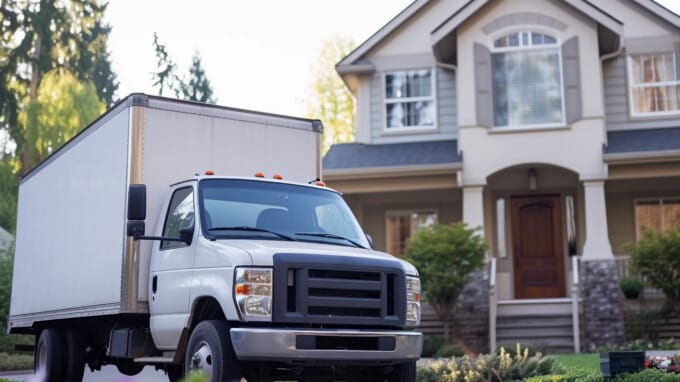Navigating Long-Distance Moves: Tips, Costs and Checklists for a Stress-Free Relocation
On top of the normal stressors of moving, long-distance moves can require additional planning and preparation.

Whether you’re relocating for a new job opportunity, seeking a fresh start or moving for personal reasons, long-distance moving can feel daunting and overwhelming. With any move, (especially long-distance moves), there are a lot of details to consider, including packing, logistics, cost and timing. It’s important to be aware of your move’s specific needs and challenges and identify your priorities and preferences.
We understand the challenges of long-distance moving and have our suggestions for tackling one. Knowing the key steps and considerations of moving long distance will make your relocation process as smooth and stress-free as possible.
How to Move Long Distance
When relocating across the country, having a checklist with all your needs will save you time and money and give you peace of mind as you navigate what can be a stressful process. Here’s a guide to help you get started.
- Establish a Timetable: Set a realistic timeline for your move, considering factors like your work schedule, family needs and housing arrangements.
- Plan Your Move:
- Decide what to do with your current housing (rent, sell or terminate the lease).
- Research reputable moving companies and begin getting surveys and quotes ASAP.
- Gather essential documents (social security cards, birth certificates, etc.).
- Arrange temporary accommodation and schooling (if applicable).
- Prepare Your Belongings:
- Sort and declutter your possessions.
- Choose what to pack, store or sell.
- Consider a small airfreight shipment for essentials.
- Notify and Update:
- Inform your post office, banks and creditors of your address change.
- Stop subscriptions and cancel or update insurance policies.
- Check if your appliances will work in the new destination.
- Final Preparations:
- Arrange for medical and dental check-ups.
- Pack and label your belongings.
- Take care of last-minute tasks (bills, deliveries, etc.).
Long-Distance Moving Costs
Now that you’ve mapped out your steps and understand what you need to prepare for your big move, the question that comes to mind is: “How much is this going to cost?” Some typical costs include packing materials and labor, transportation and fuel, insurance and liability coverage, and storage and warehousing. These are common costs for every kind of move and should be accounted for from the beginning.

Long-distance moves add another layer of costs, such as travel and accommodation expenses (for long-distance moves), utility disconnections and connections, changes to insurance policies and subscriptions, and last-minute tasks and unexpected expenses. You may also run into some unexpected costs unique to the location or purpose of your move, including specialty item handling, long carry or shuttle services, higher local or state taxes and duties, and unforeseen circumstances or delays.
These expenses can add up quickly, so it’s important to research and plan a budget to ensure you are within your financial means.
Long-Distance Move Pitfalls to Avoid
As noted, there is no shortage of costs and considerations with a long-distance move. It’s important that you don’t add to that because of avoidable mistakes and pitfalls. Here are a few common ones to be mindful of.
Research State Tax Policies and Local Laws
- Understand income tax rates: Each state has its own income tax rates, which can significantly impact your take-home pay. Research your new state’s tax rate and any applicable local taxes.
- Pet regulations: Check the vaccination requirements for pets in your new locality and ensure your furry friends are up to date on their shots.
- Vehicle registration: Look up registration and inspection details for your car to avoid fines in your new state. And don’t forget about personal property tax, which typically runs through your local city or county’s office.
Don’t Procrastinate
- Start early: Moving-related services often book up weeks or months in advance, so assess your needs and start planning as soon as possible.
- Declutter: Reduce the amount of stuff you need to bring by decluttering your home. Create a checklist for each room and sort items into piles to sell, donate or trash.
Relocating long distance can be overwhelming, especially when you start considering packing, logistics and costs. Planning ahead with a detailed checklist and understanding potential expenses are crucial for a smooth move. Avoid common pitfalls by researching local laws and taxes, and by starting the decluttering and planning process early.
Request Moving Services from Experts
At Hilldrup, we offer a range of moving services to help make your long-distance move as smooth as possible. Our expert movers can help pack, load, transport and unload your belongings. Contact us today to request a quote and learn more about our moving services.


